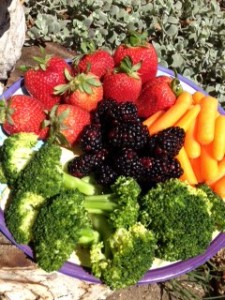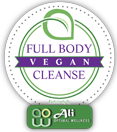Blog
Foods Affect the Human Microbiome

Foods affect the human Microbiome by supplying and allowing either healthy organisms or unhealthy organisms.
Foods Affect the Human Microbiome
“Let food by thy medicine and medicine be thy food.” the very famous quote by Hippocrates that is about 2,500 years old. They didn’t have the word “Microbiome” then, but Hippocrates clearly saw how foods affect the overall health of a person because foods affect the human Microbiome. And today, that is still true. In fact, even through this 2,500 years and the development of Western Medicine, now modern research is reaching the same conclusion that doctors from thousands of years ago knew; and that is – your body needs to be treated as a whole, because it is 1 organism. That really is the bottom line when it comes to all the research on the Microbiome.
Another saying you have heard is, “You are what you eat.” This is because the foods that we eat get broken down by organisms, bacteria and fungi mostly, into substances that are the fuel for all of our cells. Natural foods- vegetables, fruit, grains, beans, ( And yes, even animal proteins.), are composed of carbohydrates, proteins, and fats, that our body’s easily metabolize and are able to use (But not cow’s milk and the products made with cow’s milk.). If your diet consists of foods supplied by nature, and mostly unprocessed plants, your Microbiome is most likely dominant with healthy bacteria and fungi, as natural foods support these organisms.
Modern Research Reveals
In the last 10 years, a number of research studies have been able to decipher the different types of bacteria that live within the intestinal tract. Across the board these studies show differences in organisms that live in people with digestive problems compared to people who do not have digestive problems. Which makes sense since the environment in the intestines of people with digestive problems will be different and house different types of organisms than people who do not have digestive problems. Now also as a result of recent research there is a clear picture of how intestinal health effects liver health.
I tell my patients that their intestinal tract is like a compost bin. You start by putting foods into it and then one day you see there are some little bugs crawling around. Then a few weeks later you see those bugs and some new ones. And then one week you notice earth worms. Yet, you never put earth worms into the compost bin. How did they get there? They got there because the environment allowed it. Our intestinal tract is the same way. Our intestinal tract, the large intestines specifically, is the organ that is the dumpster, it carries the waste products out of our body. So, it makes sense that there will be bacteria there. What matters is what types of bacteria are there. And since this is the depository from the foods you ate, of course what foods you ate makes All the difference to what that waste is.
The Western Diets Influence on the Microbiome
The Standard American Diet, SAD, is thee cause of our health crisis today, it actually started several decades ago. And regardless, instead of changing the SAD and becoming a healthier country, right now in 2017, the U.S has not reached that turning point yet of making changes to not keep making these same health mistakes. American’s have steadily increased their consumption of sugar, processed foods, animal protein and fat. The SAD has also been the cause of digestive disorders for millions of people, as numerous studies have proved that the SAD allows unhealthy, pathogenic organisms to thrive in the intestinal tract. These studies are proof that foods affect the human Microbiome.
This is available to read in the Journal of Royal Medicine, “The number of diverse gut microbial species is diminished in nearly all modern chronic conditions studied. The ‘Western diet’, rich in animal protein, fats and artificial additives, and lacking in fibre, beneficial microbes, plant phytochemicals, vitamins and minerals, is thought to drive these conditions by encouraging gut dysbiosis. Evidence from recent dietary intervention studies suggest adopting a plant-based, minimally processed high-fibre diet may rapidly reverse the effects of meat-based diets on the gut microbiome.”1
Products found in processed foods, emulsifiers specifically, have been shown to alter the intestinal environment causing inflammation in the intestines of mice. The mice were given small amounts of 2 commonly used emulsifiers. Chronic inflammation ensued which then changed which types of bacteria were living in the intestines of the mice. As a result of these changes, the mice became obese and had metabolic syndrome. The authors concluded, “These results support the emerging concept that perturbed host-microbiota interactions resulting in low-grade inflammation can promote adiposity and its associated metabolic effects. Moreover, they suggest that the broad use of emulsifying agents might be contributing to an increased societal incidence of obesity/metabolic syndrome and other chronic inflammatory diseases.”2 Foods clearly impacted the Microbiome of mice, and foods affect the human Microbiome too.
Plant Foods Increase Bacterial Diversity
Raw unprocessed foods provide our body’s with a variety of bacteria because the phytonutrients in those plants are nutrients that those bacteria also want. So, that is one of the ways we get diverse and mostly health promoting bacteria. The raw and unprocessed foods affect the human Microbiome in the positive way we need. When food gets processed, of course all the types of bacteria get eliminated and we do not get any from that processed food. It’s just like anti-biotics, which go into our body’s and wipe out numerous types of bacteria, even the healthy ones we are supposed to have because anti-biotics, like food processing, is non-discriminating.
1 Pallister, T. Spector, TD. 2016 Sep. Food:a new form of personalized (gut microbiome) medicine for chronic diseases? Journal of Royal Society Medicine, 109(9):331-336. doi: 10.1177/0141076816658786, www.ncbi.nlm.nih.gov/pubmed/27609798#
2 Chassaing B., Koren O., Goodrich JK., et al. 2015 Mar 5. Dietary emulsifiers impact the mouse gut microbiota promoting colitis and metabolic syndrome. Nature, 519(7541):92-96, doi: 10.1038/nature14232 www.ncbi.nlm.nih.gov/pubmed/25731162
Disclaimer
This book is not a medical manual. It is intended as a reference for a healthy lifestyle. The information is given to help you make informed choices about your health. This Cleanse is not meant as a substitute for any treatment that may have been prescribed by your doctor. If you suspect that you have a medical problem, you are urged to seek competent medical help. If you are pregnant or nursing, it is recommended that you do NOT do this Cleanse. This is not the appropriate time to make radical changes to your body. These herbal formulas are NOT to be used by a pregnant woman. All recommendations are believed to be effective, but since the actual use of herbs by others is beyond the control of the author, no expressed or implied guarantee as to the effects of their use can be given nor liability taken. The publisher and author expressly disclaim all liability connected with goods/services/ products obtained with this Cleanse. Any use of the information in this book is at the reader's discretion.
Notice: If you have a corn allergy, do not take these herbs. (They are processed with corn starch.)
All rights reserved. The content on this website may not be reproduced in whole or in part, without written permission from the owner, except by a reviewer who may quote brief passages in a review; nor may any part of this website be reproduced, stored in a retrieval system, or transmitted in any form or by any means electronic, mechanical, photocopying, recording, or other, without the written permission from the publisher. Cover photo: courtesy of William Short




